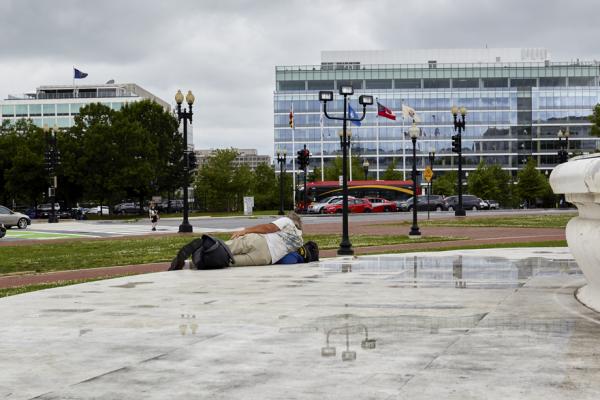Jul 30, 2018
“It's easy to catch a heat stroke from prolonged exposure to the sun and the humidity here in the district,” said Reginald Black, a homeless journalist and vendor for Street Sense, a local newspaper produced and distributed by homeless individuals.
Read the Full Article

Already a subscriber? Login
